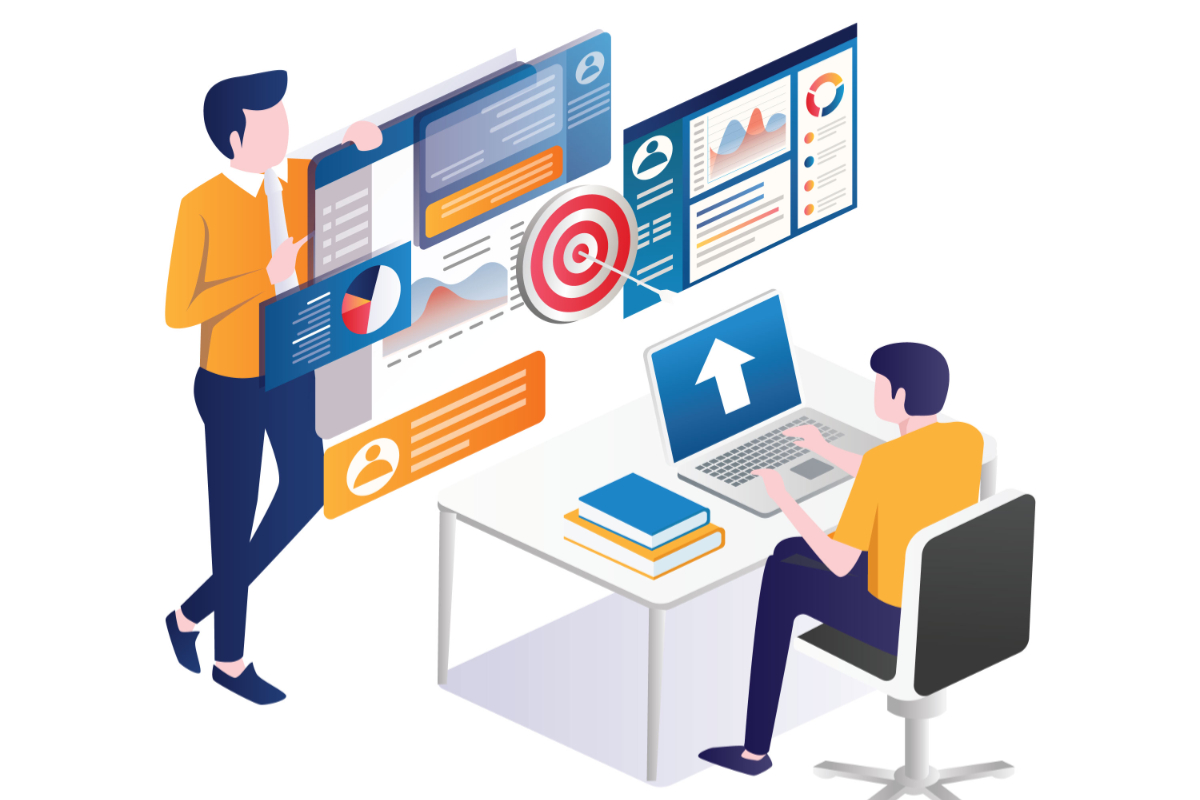Digital skills
-
14th Aug, 2022. 09:03 am

Digital skills
The capacity to comprehend and utilise technology is “digital literacy.” The term essentially represents a person’s capacity to understand, analyse, and use technology to assist them in navigating their professional and personal life.
Unesco defines digital skills as “a range of abilities to use digital devices, communication applications, and networks to access and manage information. They enable people to create and share digital content, communicate and collaborate, and solve problems for practical and creative fulfilment in life, learning, work, and social activities.”
The American Library Association (ALA) defines digital literacy as “the ability to use information and communication technologies to find, evaluate, create, and communicate information, requiring both cognitive and technical skills.”
Because many cultures are shifting to a predominantly digital context, more students than ever are studying via and utilising online platforms. To guarantee that students can use and contribute to these resources in meaningful ways, educators and providers must ensure that everyone has the fundamental skills required for success.
Furthermore, digital literacy is relevant to the workplace — and since many companies are opting to shift online, organisations must upskill their employees. Employees risk feeling under-equipped to accomplish their jobs if they lack the skills, knowledge, or confidence required to traverse their company’s portals.
Digital skills are required to “use digital devices, communication apps, and networks to obtain and manage information,” from simple web searching and emailing through programming and development. These abilities enable individuals to collaborate, generate digital content and problem-solve in a work-anywhere environment.
Digital Literacy refers to a person’s understanding of and ability to utilise technology to access, navigate, and contribute to society. Digital literacy directly impacts how effectively or independently a learner understands and uses digital platforms in their professional and personal life, depending on their unique literacy level.
Digital Learning describes the act of learning through digital means such as software, websites, or applications and includes the learning process.
The epidemic accelerated the digital revolution, changing everything from grocery shopping to employment. As organisations migrated from physical to digital headquarters, demand for digital capabilities increased. This tendency has been growing across all sectors for decades, but today’s pace is unparalleled. Digital adoption and the digital skills required to embrace the shift are crucial for gaining secure, in-demand tech jobs. Businesses need these talents to survive.
The transition to digital-first engagements like remote employment, online education, online shopping, and virtual collaboration has made digital skills more critical than ever. This transformation has increased worker flexibility and removed location as a barrier to employing fresh talent. Still, it’s also widened an already-large skills gap.
Digital skills gap
Almost a third of the workforce lacks the fundamental digital skills that companies need, implying that a big group of professionals requires reskilling. You may profit from further training if you want to improve your digital abilities or if you want to join the job with a solid résumé. Here are various alternatives to attending a typical four-year college or university for gaining digital skills.
As stated, there aren’t enough individuals with the essential digital capabilities to support firms’ transformation today and in the future.
The Digital skills gap has significant economic ramifications. Salesforce and RAND Europe found that the digital skills gap is disruptive to corporate development, with 14 G20 countries missing out on $11.5 trillion in GDP growth. Digital skills won’t be demo-cratised across all countries, industries, and communities.
The skills gap will increase unless underprivileged and marginalised groups have equitable access to reskilling technologies and education. Everyone needs digital skills to engage in the emerging digital-first world.
Future tech skills
Decades ago, email was novel, yet now billions use it daily. Recent technologies like blockchain, AI, and the cloud have gone from fringe to mainstream, raising digital skills needs by up to 50% in Europe and the US.
Without mastery of digital capabilities, there is no way to drive innovation and stay competitive. Employers are aware of this; therefore, they prioritise applicants who can demonstrate digital literacy. Employees may contribute to their communities, future-proof their professions, and explore a wide variety of professional options by improving their digital abilities.
Digital skill-building may be scary. The educational wealth gap is a hurdle for those who can’t afford a four-year degree. There’s no one-size-fits-all solution.
Micro-degrees, or super-focused online degrees, may bridge the gap. Instead of contributing to the $1.7 trillion in student debt, students might get specialised degrees that lead to IT careers.
Micro-degrees may also help individuals advance in their current businesses or change careers. Salesforce Chair and CEO Marc Benioff told NBC, “Everyone believes you can’t be successful without a college degree, but that’s not true.” Without a degree, you can generate fantastic value.
Top global firms support the skilling imperative via platforms, programmes, initiatives, and investments. These activities assist individuals of all backgrounds to locate and confidently proceed toward lucrative, life-changing jobs.
LinkedIn Learning, Pearson, Edraak, Coursera, Udemy, Skillshare, and others provide in-demand talents. These platforms enable more individuals to obtain specialised skills whenever, wherever, and whatever they choose, opening doors to greater economic possibilities for people throughout the globe.
(The writer is an EdTech expert)
Catch all the Business News, Breaking News Event and Latest News Updates on The BOL News
Download The BOL News App to get the Daily News Update & Live News.